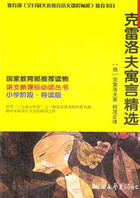We went to Chelsea, for the summer, and boarded with the Baptist minister, the Rev. John Wesley Olmstead, afterward editor of The Watchman and Reflector . He had married my cousin, Mary Livingston, one of the most lovely, unselfish characters I ever knew. There I had the opportunity of meeting several of the leading Baptist ministers in New England, and, as I was thoroughly imbued with Parker's ideas, we had many heated discussions on theology. There, too, I met Orestes Bronson, a remarkable well-read man, who had gone through every phase of religious experience from blank atheism to the bosom of the Catholic Church, where I believe he found repose at the end of his days. He was so arbitrary and dogmatic that most people did not like him; but I appreciated his acquaintance, as he was a liberal thinker and had a world of information which he readily imparted to those of a teachable spirit. As I was then in a hungering, thirsting condition for truth on every subject, the friendship of such a man was, to me, an inestimable blessing. Reading Theodore Parker's lectures, years afterward, I was surprised to find how little there was in them to shock anybody杢he majority of thinking people having grown up to them.
While living in Chelsea two years, I used to walk (there being no public conveyances running on Sunday) from the ferry to Marlborough Chapel to hear Mr. Parker preach. It was a long walk, over two miles, and I was so tired, on reaching the chapel, that I made it a point to sleep through all the preliminary service, so as to be fresh for the sermon, as the friend next whom I sat always wakened me in time. One Sunday, when my friend was absent, it being a very warm day and I unusually fatigued, I slept until the sexton informed me that he was about to close the doors! In an unwary moment I imparted this fact to my Baptist friends. They made all manner of fun ever afterward of the soothing nature of Mr. Parker's theology, and my long walk, every Sunday, to repose in the shadow of a heterodox altar. Still, the loss of the sermon was the only vexatious part of it, and I had the benefit of the walk and the refreshing slumber, to the music of Mr. Parker's melodious voice and the deep-toned organ.
Mrs. Oliver Johnson and I spent two days at the Brook Farm community when in the height of its prosperity. There I met the Ripleys,杦ho were, I believe, the backbone of the experiment,朩illiam Henry Channing, Bronson Alcott, Charles A. Dana, Frederick Cabot, William Chase, Mrs. Horace Greeley, who was spending a few days there, and many others, whose names I cannot recall. Here was a charming family of intelligent men and women, doing their own farm and house work, with lectures, readings, music, dancing, and games when desired; realizing, in a measure, Edward Bellamy's beautiful vision of the equal conditions of the human family in the year 2000. The story of the beginning and end of this experiment of community life has been told so often that I will simply say that its failure was a grave disappointment to those most deeply interested in its success. Mr. Channing told me, years after, when he was pastor of the Unitarian church in Rochester, as we were wandering through Mount Hope one day, that, when the Roxbury community was dissolved and he was obliged to return to the old life of competition, he would gladly have been laid under the sod, as the isolated home seemed so solitary, silent, and selfish that the whole atmosphere was oppressive.
In 1843 my father moved to Albany, to establish my brothers-in-law, Mr. Wilkeson and Mr. McMartin, in the legal profession. That made Albany the family rallying point for a few years. This enabled me to spend several winters at the Capital and to take an active part in the discussion of the Married Woman's Property Bill, then pending in the legislature. William H. Seward, Governor of the State from 1839 to 1843, recommended the Bill, and his wife, a woman of rare intelligence, advocated it in society. Together we had the opportunity of talking with many members, both of the Senate and the Assembly, in social circles, as well as in their committee rooms.
Bills were pending from 1836 until 1848, when the measure finally passed.
My second son was born in Albany, in March, 1844, under more favorable auspices than the first, as I knew, then, what to do with a baby. Returning to Chelsea we commenced housekeeping, which afforded me another chapter of experience. A new house, newly furnished, with beautiful views of Boston Bay, was all I could desire. Mr. Stanton announced to me, in starting, that his business would occupy all his time, and that I must take entire charge of the housekeeping. So, with two good servants and two babies under my sole supervision, my time was pleasantly occupied.
When first installed as mistress over an establishment, one has that same feeling of pride and satisfaction that a young minister must have in taking charge of his first congregation. It is a proud moment in a woman's life to reign supreme within four walls, to be the one to whom all questions of domestic pleasure and economy are referred, and to hold in her hand that little family book in which the daily expenses, the outgoings and incomings, are duly registered. I studied up everything pertaining to housekeeping, and enjoyed it all. Even washing day杢hat day so many people dread杊ad its charms for me. The clean clothes on the lines and on the grass looked so white, and smelled so sweet, that it was to me a pretty sight to contemplate.
I inspired my laundress with an ambition to have her clothes look white and to get them out earlier than our neighbors, and to have them ironed and put away sooner.















